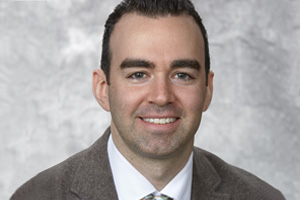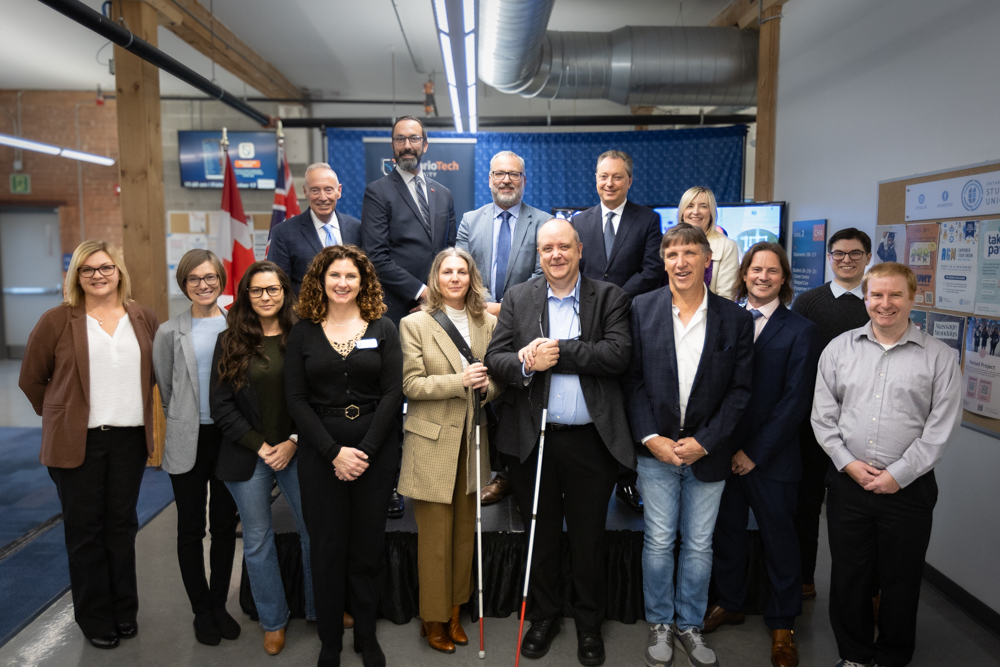UOIT researcher pioneering new testing methods to detect arsenic in water
May 22, 2014

For the past two decades, arsenic contamination of groundwater has posed one of the most serious public health threats in the south Asian nation of Bangladesh, one of the world’s most densely populated countries. Compounding the problem over the years has been the costly – and sometimes dangerous – methods of testing water samples.
A 2008 World Health Organization report estimated up to 70 million people in Bangladesh drink water that contains unsafe arsenic levels. Health problems associated with arsenic poisoning include diarrhea, vomiting, convulsions and some types of cancers.
A researcher with the University of Ontario Institute of Institute of Technology (UOIT) is working hard to help develop a new paper-based method of testing water sources in Bangladesh that is both effective and inexpensive.
Dr. Brendan MacDonald, an Assistant Professor in UOIT’s Faculty of Engineering and Applied Science, has been recognized for his innovative research approach with a new funding award of $112,000 from Grand Challenges Canada (GCC) through its Stars in Global Health seed grant program.
“Our research team travelled to Bangladesh for nine days at the end of April and early May, and we are getting very positive feedback for the tests we will be developing,” said Dr. MacDonald. “Field-test kits used in the past create a multi-stage reaction which can actually generate toxic chemicals. But we know paper works in medical diagnostics such as pregnancy tests. Paper is readily available, inexpensive, easy to use, disposable and does not require an external power source.”
GCC is funded by the Government of Canada and dedicated to supporting bold ideas with big impact in global health. Dr. MacDonald’s project is part of GCC’s $12 million new investment in projects worldwide, aimed squarely at improving the health and saving the lives of mothers, newborns and children in developing countries.
A simple, low-cost, paper-based test for arsenic developed by Dr. MacDonald’s project will help forewarn people when water’s arsenic content exceeds safe levels.
“We are grateful to Grand Challenges Canada for its generous support of our new approach to quickly identify contaminated water sources, a system we anticipate could be applied anywhere in the future,” said Dr. MacDonald. “We believe this is the right way to safely determine the level of arsenic in water sources, prior to human consumption.”
Dr. MacDonald is collaborating on the research with Professor Nadim Khandaker, North South University of Bangladesh.
“Our government is proud of the progress on promises Canada and other nations made as part of the Muskoka Initiative to improve the health and save the lives of women, newborns and children in the developing world,” said the Honourable Christian Paradis, Minister of International Development and Minister for La Francophonie. “By supporting innovative proof-of-concept projects and the scale-up of proven ideas, and by leveraging additional private sector knowledge and funds, a difference is being felt in health conditions in developing countries. The creation of jobs here and abroad serves as an added benefit.”
“All of the projects announced today illustrate the power of innovation to save and improve the lives of women and children,” said Dr. Peter A. Singer, Chief Executive Officer, GCC.
“Innovation really means that tomorrow will be a brighter day than today for those who need it the most in developing nations. I salute the global leadership Canada is showing in focusing the world’s attention on saving every woman and every child.”



